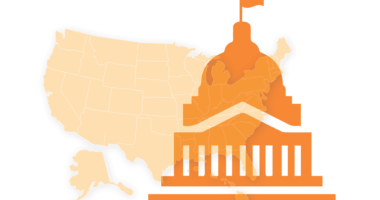22 Organizations Express Opposition to Broad Authority to Waive Student Protections in the Higher Education Act
The Honorable Bobby Scott
Chairman
House Education and Labor Comm.
Washington, D.C. 20515
The Honorable Lamar Alexander
Chairman
Senate HELP Committee
Washington, D.C. 20515
The Honorable Virginia Foxx
Ranking Member
House Education and Labor Comm.
Washington, D.C. 20515
The Honorable Patty Murray
Ranking Member
Senate HELP Committee
Washington, D.C, 20515
Dear Chairman Scott, Ranking Member Foxx, Chairman Alexander, and Ranking Member Murray,
We, the undersigned 22 organizations, write to express our opposition to Sect. 4511 of the proposed Senate Republican coronavirus response legislation.
Authorizing the U.S. Secretary of Education to uniformly waive hundreds of significant student protections contained within the Higher Education Act is an extreme overreach and fundamentally unnecessary for dealing with the coronavirus crisis. Additionally, this expansive, dangerous authority would be granted for a longer time period than any other emergency provision within this part of the bill, and it could be extended without limit. This public health crisis shouldn’t be used as an excuse to turn a blind eye to colleges in ways that will harm students and taxpayers, especially when millions are at their most vulnerable.
The authority granted in Sec. 4511 of the Senate proposal could produce extremely damaging outcomes to students and eliminate any consequences for institutions of higher education for those outcomes. For example:
- Skyrocketing cohort default rates could be allowed under this authority, with no recourse for federal lawmakers as students continue to attend institutions that are not preparing them to weather the coming economic storm.
- Tens of billions of dollars in taxpayer funds may not serve their intended purposes or reach those in need. Students could be left without even minimal assurances of the quality and financial security of their institutions.
- Additionally, this roll back of reporting requirements threatens students’ safety and civil rights, despite the language that attempts to prevent the elimination of civil rights protections. Waiving the need for institutions to track and report information related to campus safety and civil rights is especially concerning at a time when students, families, and institutions are most vulnerable.
Any new flexibility for colleges should be temporary, and clearly and tightly adhered to the period of time this “qualified emergency” is taking place. Any actions taken should be legally limited to what’s necessary for supporting students and persevering through the disruptions to our educational system caused by the coronavirus. For example:
- Waivers allowing colleges to get online instruction up and running as quickly as possible are necessary, and we would support those actions.
- Some flexibility regarding financial responsibility requirements may also be needed, especially for under-resourced institutions that serve students of color and low-income students who are facing extreme financial stress.
- Suspension of some provisions that would prevent the transfer of campus-based aid funds and limit the amount of grant aid institutions can award are also essential to get vital resources in the hands of students and families.
However, allowing colleges to forgo collecting and reporting data into IPEDS, especially at a time when we will need to be able to look back and assess the damage done to students and institutions by the coronavirus, is unnecessary to address the crisis and would weaken the higher education system for years to come. That waiver authority should not be conferred to the Secretary; it should be exempted from any individual waiver request process created. Finally, any waivers conferred by this emergency law should be time limited to the duration of the emergency.
We urge quick action to dramatically narrow the proposed expansion of waiver authority in this bill.
Sincerely,
Americans for Financial Reform
Association of Young Americans (AYA)
Center for American Progress
Center for Law and Social Policy (CLASP)
Center for Responsible Lending
CT Citizen Action Group
Democrats for Education Reform
Demos
Education Reform Now Advocacy
Generation Progress
Hildreth Institute
National Association for College Admission Counseling
National Indian Education Association
National Women’s Law Center
New America Higher Education Program
Project on Predatory Student Lending
Southeast Asia Resource Action Center (SEARAC)
Stephanie Hall, The Century Foundation
The Education Trust
The Institute for College Access and Success (TICAS)
U.S. Public Interest Research Group (PIRG)
Young Invincibles

